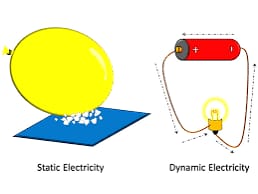WORK EDUCATION – Definition, Historical Perspective, Concept and Objectives
Definition of Work Education
Work Education is viewed as purposive and meaningful manual work, organized as integral part of the learning process and resulting into goods or services useful to the community, besides the pleasure of self fulfillment. It should be an essential component at all stages of education and must be provided through a well-structured and graded programme. The competencies to be developed in this field should include knowledge, understanding skills and values through need-based life activities. Major categories of work, which need to be specifically stressed include: a) Work pertaining to the needs of individual, such as health, hygiene, clothing, cleanliness, etc; b) Work at home to be performed as a member of the family; c) Work in the classroom, school and in the out of school activities integrated with school life; d) Work as a learning experience through other subjects such as physical education, art education, social studies, science and others; e) Work in the community focused on selfless service; f) Work relating to vocational development, production, social usefulness and exploration of the opportunities and care pathways.
Historical Perspective Over the past fifty years in our country and especially in the last twenty years or so, there has been an increasing appreciation of the need to include work as a vital component at all stages of school education. This has its roots in the perceptions about work education as a powerful means of restoring respect and dignity to all types of manual work, removing distinctions between manual workers and white collar workers, promoting self-reliance in meeting one’s daily needs and those of the society, increasing productivity through the development of proper work skills and values, and accelerating the process of economic development in the country through community service and social work by students. 2 More specifically, Work Education provides the basis for building up proper attitudes towards work developing favourable work values and habits, imparting necessary knowledge related to work, and developing appropriate work skills, which can help the children to become productive and self-reliant in meeting their day-to-day needs and those of their families and communities. Work Education can further enable the children to discover their real interests and aptitudes which would be helpful to them in selecting suitable courses of study and occupations later on. Since work occupies a prominent position in the life and wellbeing of an individual and a country, Work Education should have a pride of place in the school curriculum as a means of achieving self-reliance and as a preparation for adult life. In view of the unique importance of work education for the all round development of the child and well-being of the country, considerable importance has been given to it in almost all important schemes, reports and documents on education which have come out in the last fifty years e.g. Gandhiji’s Scheme of Basic Education, Kothari Commission’s Report, NCERT’s Ten-Year School Curriculum, Report of the IshwarBhai Patel Committee, the National Policy of Education, 1986 and more recently the National Curriculum Framework 2000. Consequently, work education has come to be viewed as an important link between education and productivity, as an important instrument for the preparation of the child as a self-supporting and productive citizen and as a potent means of social reconstruction and national development. It has been introduced and implemented under different names, such as Craft Education (1937), Work Experience (1967), Socially Useful Productive Work (1977), at different times and in different parts of the country. The National Policy on Education (NPE) has assigned a very important place to work education in the school curriculum at all stages. It has reverted to the term “Work Experience” which was earlier used by Kothari Commission for work education. The NPE states: “Work Experience, viewed as purposive, meaningful, manual work, organized as an integral part of the learning process and resulting in either goods or services useful to the community, is considered as an essential component (of curriculum) at all stages. It is to be provided through well structured and graded programmes. Work Experience would comprise activities in accordance with the interests, abilities and needs of students, the level of skills and knowledge to be upgraded with the stages of education. This experience would be helpful to a student on his entry into the work force. Pre-vocational programmes provided at the 3 lower secondary stage will also facilitate the choice of vocational courses at the higher secondary stage.

Comments
Post a Comment